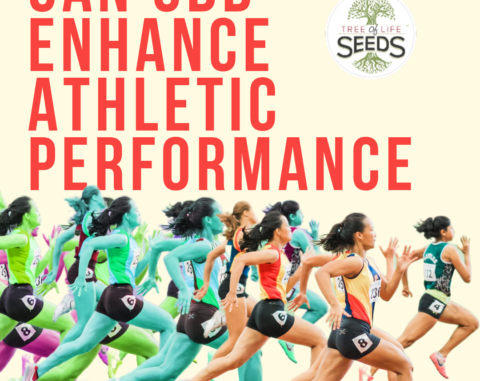
Cannabidiol, more commonly referred to as CBD, has been gaining significant attention in recent years due to its
potential health benefits. This natural compound derived from the cannabis plant is believed to have various therapeutic
properties, including pain relief, reduced anxiety, improved sleep, and anti-inflammatory effects. As a result, many
athletes are turning to CBD products to enhance their performance and aid in recovery. In this article, we will explore
the potential impacts CBD can have on athletic performance and what athletes need to know before incorporating it into
their regimen.
The Science Behind CBD
CBD interacts with the body’s endocannabinoid system (ECS), which plays a crucial role in regulating various physiological
functions, such as mood, appetite, sleep, and pain sensation. The ECS consists of cannabinoid receptors (CB1 and CB2)
distributed throughout the body. CBD is believed to influence these receptors indirectly, leading to its reported
effects on pain and inflammation reduction.
Research suggests that CBD’s anti-inflammatory properties can help athletes with post-workout recovery by reducing
muscle soreness and promoting faster healing. Additionally, CBD may help alleviate anxiety and improve sleep quality,
enhancing an athlete’s overall well-being and ability to perform at their best.
CBD and Performance Anxiety
Performance anxiety is a common issue among athletes, and CBD has gained attention for its potential to reduce anxiety
symptoms. Unlike tetrahydrocannabinol (THC), another compound found in cannabis, CBD does not have psychoactive effects,
meaning it does not cause a “high” sensation. This makes it a promising solution for athletes seeking anxiety relief
without impairing their cognitive function or compromising their athletic performance.
Several studies have suggested that CBD may help reduce social anxiety and improve symptoms associated with performance
anxiety disorders. By interacting with serotonin receptors in the brain, CBD can promote relaxation and calmness, which
can be beneficial for athletes dealing with pre-competition jitters or high-pressure situations.
Pain Relief and Recovery
Intense physical training and competitive sports often come with a high risk of injuries and chronic pain. CBD has
emerged as a potential natural alternative to traditional pain medications for athletes. Its analgesic (pain-relieving)
and anti-inflammatory properties can help alleviate pain and reduce inflammation without the risk of addiction or
adverse side effects associated with opioids or nonsteroidal anti-inflammatory drugs (NSAIDs).
Furthermore, CBD may aid in the recovery process by promoting muscle relaxation and reducing muscle spasms. By easing
muscle tension, athletes can potentially experience faster recovery times and improved performance.
Legal Considerations and Doping Tests
While the World Anti-Doping Agency (WADA) removed CBD from its prohibited substances list in 2018, THC, the psychoactive
compound found in cannabis, remains prohibited. Athletes should be cautious when using CBD products to ensure they are
THC-free and compliant with their sport’s governing body regulations.
It is crucial for athletes to verify the CBD products they are using through third-party lab testing to ensure they
contain no THC or other prohibited substances. Additionally, athletes should be aware that certain CBD products may
contain varying concentrations of CBD and may have different absorption rates, affecting their overall efficacy.
Conclusion
As CBD’s popularity continues to rise, many athletes are turning to this natural compound for potential performance and
recovery benefits. CBD’s therapeutic properties, such as pain relief, reduced anxiety, and improved sleep, make it an
attractive option for athletes seeking alternative solutions to enhance their athletic performance.
However, athletes must be well-informed about the potential benefits and legal considerations surrounding CBD use. It is
recommended to consult with healthcare professionals, sports medicine experts, or nutritionists to determine the
appropriate usage and dosage for their specific needs.
